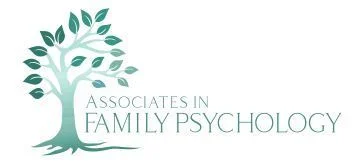What is Obsessive Compulsive Disorder?
Obsessions are like unwanted guests in your mind that just won't leave you alone. They are those thoughts or urges that keep popping up, making you feel super anxious, scared or not right. Sometimes they don't even make sense, and they can go against what you believe or want. People often associate obsessions with OCD, but they can be a part of other mental health conditions too. And because they're so bothersome, they often push you to do things repeatedly, hoping to calm down the anxiety they bring. Unfortunately, these actions only give temporary relief and can increase both the urges and distress.
Compulsions are like very strong habits —they're actions or behaviors, that someone feels like they have to do, even if they don't really want to. Compulsions are often done in response to obsessive thoughts to try and make the anxiety go away. These actions can be things like washing hands repeatedly, checking locks, arranging things in a specific order or even doing things mentally to try to get relief. They are a big part of OCD, but they can also happen with other issues or all by themselves.

Common themes of OCD can include contamination, harm to self or others, sexual or gender content, responsibility, moral or religious content, sensorimotor focus, hoarding, relationship, perfection, morality, existential or philosophical content, real event or false memory content.
Sometimes the obsessive focus can be pointed at different parts of the body, which can include other OCD Spectrum Disorders such as: Body Dysmorphic disorder (BDD), Trichotillomania (TTM) (hair-pulling disorder); and Excoriation (skin-picking) disorder.
Regardless of the theme, the obsessive-compulsive cycle is the same: an Intrusive thought, image, sensation or urge Anxiety ->Compulsions -> Relief, and the cycle starts all over. A psychologist specializing in OCD can help you to disrupt this cycle and relieve symptoms.
How is OCD Treated?
Treating OCD usually means using a mix of therapy, medicine, and ways you can help yourself. It is helpful to work with a psychologist or therapist who has specialized training in treating OCD, who can make a plan that fits you best.
- Exposure and Response Prevention (ERP): This is a big one. It involves facing your fears gradually and resisting the urge to do compulsions. Over time, you can actually rewire your brain patterns, changing the cycle that makes the anxiety worse.
- Cognitive Behavioral Therapy (CBT): This helps you recognize and change the patterns of thinking and behaviors that feed your OCD. ERP is actually a type of CBT.
- Acceptance and Commitment Therapy (ACT): This one focuses on accepting your thoughts and feelings instead of fighting them. It helps you make room for them without letting them control you.
- Mindfulness-Based Therapies: These therapies also very effective in helping you to be more present in the moment and less affected by intrusive thoughts, which can help reduce anxiety and compulsive behaviors.
- Family Therapy: Involving family members can help them understand OCD better and learn how to support you in your treatment. In efforts to help, some family members may unknowingly reinforce OCD and other forms of anxiety.
- EMDR: Some people may find EMDR helpful for managing certain aspects of their OCD symptoms.
